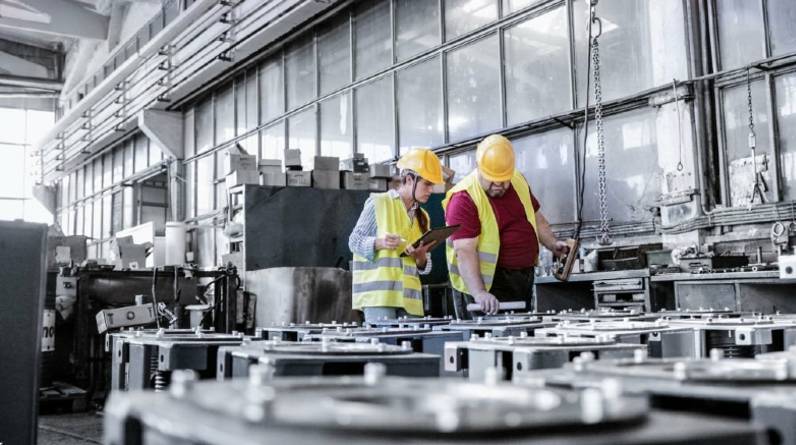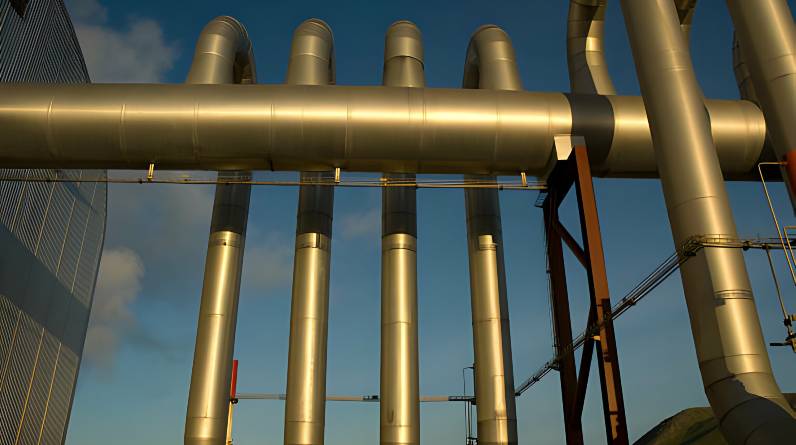
Industrial machinery is the backbone of various industries, driving manufacturing, construction, and countless other sectors. However, with the power and complexity of these machines comes the responsibility to ensure their safe operation.
This comprehensive blog post will delve deep into ten tips for keeping industrial machinery safe. We will place a special emphasis on the crucial role of maintaining industrial parts in preserving the safety and efficiency of these workhorses.
1. Regular Inspections: The Foundation of Safety
Regular inspections are the cornerstone of industrial machinery safety. These inspections should be conducted by qualified technicians who meticulously examine every aspect of the machinery.
The critical focal point here is industrial parts such as gears, belts, bearings, and other components bearing the brunt of daily operations. The goal is to identify any signs of wear, corrosion, or damage that might compromise the machinery’s integrity.
2. Lubrication: The Lifeblood of Industrial Parts
Lubrication is not just a mundane task; it’s a lifeline for industrial machinery. Adequate lubrication reduces friction and prevents overheating in critical industrial parts. To ensure the longevity and safety of your equipment, it’s essential to maintain proper lubrication. Regularly check oil and grease levels, and follow the manufacturer’s recommendation.
3. Training: Knowledge is Safety
No safety protocol is complete without well-trained operators. Ensure that your staff receives thorough training in using industrial machinery. They should know how to operate the equipment and recognize warning signs of potential issues. Training enhances safety, boosts efficiency, and reduces the risk of accidents caused by operator error.
4. Safety Protocols: A Comprehensive Approach
Establishing comprehensive safety protocols is paramount. These protocols should outline how to operate equipment safely and detail procedures to follow in an emergency. Emphasize the importance of wearing appropriate safety gear, and make sure your team understands and adheres to these guidelines religiously.
5. Replace Worn Parts: Preventing Catastrophic Failures
Industrial machinery parts have a finite lifespan. Delaying the replacement of worn-out or damaged parts can lead to catastrophic failures, endangering personnel and machinery. Stay proactive and replace these parts promptly to avoid accidents and unexpected downtime.
6. Proper Storage: Protecting Your Investment
When machinery is not in use, it should be stored properly. Protect it from the elements and ensure it is securely stored to prevent accidents caused by accidental movement. A well-designed storage strategy can extend the lifespan of your equipment and minimize the need for repairs.
7. Regular Cleaning: The Neglected Aspect of Safety
Dust and debris may seem harmless, but they can accumulate on machinery and interfere with its operation. Regularly cleaning industrial parts prevents clogs or jams and contributes to a safer working environment. Cleanliness is not just about aesthetics; it’s a crucial aspect of machinery safety.
8. Electrical Safety: A High-Stakes Game
Industrial machinery often relies on electricity, making electrical safety paramount. Ensure that all electrical components are properly maintained and regularly inspected for signs of wear or damage. Faulty electrical systems can pose a significant risk, so staying on top of maintenance is non-negotiable.
9. Emergency Stop Mechanisms: Swift Action in Crisis
Installing emergency stop mechanisms on your machinery is a safety must-have. In an emergency or malfunction, these mechanisms allow operators to halt the equipment quickly, preventing further damage or injury. A rapid response can differ between a minor hiccup and a catastrophic incident.
10. Stay Informed: An Ever-Evolving Landscape
The world of industrial machinery is constantly evolving. New safety guidelines and technological advancements are introduced regularly. To maintain a safe workplace, it’s imperative to stay informed. Continuous education and awareness are crucial to ensure the safety of your employees and the longevity of your equipment.
Conclusion:
Safety should always be the top priority when dealing with industrial machinery. By following these ten comprehensive tips and placing a special emphasis on the maintenance of industrial parts, you can create a safer work environment, reduce the risk of accidents, and ensure the longevity of your equipment.
Remember, a well-maintained machine is not only safe but also more efficient and cost-effective in the long run. Prioritizing safety is not just a legal obligation; it’s an ethical and operational imperative in the industrial world.





